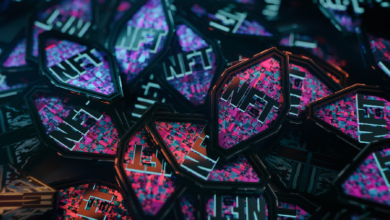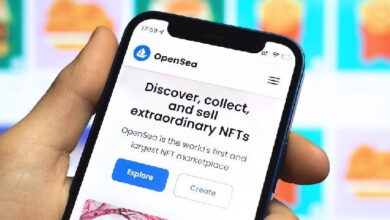2023 scored a field goal for sport NFTs

2023 was a year of transformation for digital sports collectibles.
Several widely hyped attempts to merge crypto with sports entertainment failed to catch on; more than a few Web3 projects pivoted or restructured their offering, responding in realtime to shifting demand.
But there is a silver lining. Sports platforms that centered on fan culture proved surprisingly resilient. New platforms that focused on gamified experiences found their footing, and even in some cases, significant growth. The truth is, most fans aren’t looking to become team managers via tokens — they’re looking for connections with their favorite players, and new ways to experience the game they love.
Here are three takeaways from the world of Web3 sports in 2023.
Crypto fan tokens first arrived on the scene nearly half a decade ago, promising holders a variety of benefits, including team voting rights and exclusive access to content. However, most of these benefits have failed to materialize in a meaningful way, stoking criticism from fans.
This year, Tottenham released their own fan token, only to experience the same community pushback experienced by other European soccer clubs who were early to the fan token game, including Paris Saint-Germain and Juventus. Participating fans felt disenfranchised from club decision-making, and speculation continued to be prioritized over genuine engagement. The UK Parliament went so far as to publish a report criticizing British soccer clubs for promoting sports NFTs tied to illusory perks.
Beyond Europe, however, several soccer clubs have begun advancing the concept of fan tokens through more ambitious forms of community governance. Avispa Fukuoka, a Japanese soccer club in the nation’s top J1 League, transitioned into a full-fledged decentralized autonomous organization (DAO) this February. This model grants Avispa’s members much more decision-making power than the programs we’ve seen in Europe to date, and several other Japanese soccer teams have followed in Avispa’s footsteps and adopted the DAO model.
The year also held additional hope for fan tokens in the form of full-contact experimentation. Karate Combat, a live combat sports league set in virtual environments, began transitioning their organization into a DAO run by both athletes and fans this year.
And while earlier sports DAOs like Krause House have yet to achieve their members’ ambitions, this new generation of DAO-ified sports clubs may signal a broader movement towards bolder, fuller forms of community governance. In short, while many have fallen short of their initial promises, it’s too soon to count fan tokens out.
For many sports enthusiasts, collectibles are much more than digital objects — they’re part of their identity as fans. This deep connection is one of the reasons why digital collectibles have seen sustained success among sports fans, particularly when paired with gamification features.
Despite launching during 2023’s bear market, the release of NFL Rivals is a great example. The game lets users build virtual teams using NFTs of NFL players to compete with other fans, gamifying the process of collecting and trading these collectibles. These NFL collectibles also unlock exclusive in-game events and rewards, further immersing players in the world of football.
This is also why 2023 saw a number of platforms focused on improving access to Web3 experiences, through products like commemorative tickets and free-to-play games. During the 2023 baseball season, over 100,000 commemorative tickets were redeemed by baseball fans on Candy Digital. To celebrate the MLB playoffs, the platform launched a free game for baseball fans, providing a new onramp for fans to experience digital assets.
This dual-track approach mirrors recent developments within the Web3 gaming space, and over the past year, both the sports NFT and Web3 gaming industries have become more accessible and enjoyable for “crypto curious” audiences and no-coiners alike.
Beyond digital collectibles, major sports leagues like the MLB and NFL went big this year with new Web3 venues and platforms dedicated to connecting fans with one another and their favorite players. Even though most sports entertainment is consumed from home, socialization and community-building will always be the heart of sports culture.
To that end, the MLB became the first major sports league to launch a virtual ballpark in their very own metaverse this year, providing an interactive setting for fans to gather during live baseball games. The virtual ballpark’s first live event included an NFT scavenger hunt and other Web3 activations, showcasing how Web3 can also be used effectively in real-world sports settings.
Read more from our opinion section: Sports betting is crypto’s true killer app
Not to be outdone, the NFL Alumni Association is working on a new initiative that empowers former athletes to create their own Web3 experiences and connect with fans. While this new platform is still under development, it is also expected to feature digital collectibles and metaverse interactions.
Based on the results of Deloitte’s 2023 Future of Sports Fandom report, digital platforms like this may be what fans are increasingly attracted to. With the majority of report respondents expecting in-home sports entertainment to be more interactive, immersive and easier to access than they are today, this year’s Web3 activations are certainly raising the bar for the industry.
The Web3 sporting projects that have found success have taken the lessons of the recent bear market to heart: building experiences that connect fans with their favorite players, and allowing them to experience the game in new ways. As these platforms show us, digital ownership can unlock something transformative for fans: the ability to create your place, and your legacy, on the field.
It’s clear that the goal isn’t to get sports fans to ape into crypto — it’s to unlock new forms of entertainment and engagement, powered by Web3 technology.
Scott M. Lawin is Co-Founder & CEO of Candy Digital, Inc., a next-generation sports and culture digital asset platform, providing authentic objects and experiences that deepen fan engagement and connect people to their passions. Before launching Candy, Mr. Lawin founded Parametric, LP, a private investment and advisory firm focused on early-stage opportunities in blockchain, fintech, art, and real estate. From 2010-2017, Mr. Lawin was the Chief Operating Officer of Moore Capital Management, a $15bn global alternative investment management company. Prior to joining Moore, Mr. Lawin served as Chief Operating Officer of the Liquid Markets business at Fortress Investment Group following a 12-year career at Goldman, Sachs & Co.





